- Home
- Jason Matthews
The Kremlin's Candidate
The Kremlin's Candidate Read online
Praise for the First Two Books in the Red Sparrow Trilogy
REDSPARROW
“A primer in twenty-first-century spying . . . Terrifically good.”
—The New York Times Book Review
“A smart, intriguing tale rooted in his own experience . . . Fans of the genre’s masters including John le Carré and Ian Fleming will happily embrace Matthews’s central spy.”
—USA Today
“You, too, may also conclude that Red Sparrow is the best espionage novel you’ve ever read.”
—The Huffington Post
“[A] sublime and sophisticated debut . . . Red Sparrow isn’t just a fast-paced thriller—it’s a first-rate novel as noteworthy for its superior style as for its gripping depiction of a secretive world.”
—The Washington Post
“This debut novel from a thirty-three-year CIA veteran delivers action as pulse-pounding as it is authentic.”
—New York Post
“Matthews’s exceptional first novel will please fans of classic spy fiction. . . . The author’s thirty-three-year career in the CIA allows him to showcase all the tradecraft and authenticity that readers in this genre demand. . . . [A] complex, high-stakes plot.”
—Publishers Weekly (starred review)
“An intense descent into a vortex of carnal passion, career brutality, and smart tradecraft, this thriller evokes the great Cold War era of espionage.”
—Library Journal (starred review)
“A compelling and propulsive tale of spy versus spy . . . Red Sparrow is greater than the sum of its fine parts. Espionage aficionados will love this one.”
—Booklist (starred review)
“Features enough action to satisfy even the most demanding of adrenaline junkies . . . The author’s CIA background and the smart dialogue make this an entertaining tale for spy-novel enthusiasts.”
—Kirkus Reviews
“Not since the good old days of the Cold War has a classic spy thriller like Red Sparrow come along. Jason Matthews is not making it up; he has lived this life and this story, and it shows on every page. High-level espionage, pulse-pounding danger, sex, double agents, and double crosses. What more can any reader want?”
—Nelson DeMille
“[Jason Matthews is] an insider’s insider. He knows the secrets. And he is also a masterful storyteller. I loved this book and could not put it down. Neither will you.”
—Vince Flynn
“The spy thriller is back in full force thanks to newcomer and CIA insider Jason Matthews. . . . I have not read a more exciting, gripping novel in a long time.”
—Doug Stanton, New York Times bestselling author of Horse Soldiers
“All the tradecraft and cat-and-mouse tension of a classic spy thriller—a terrific read.”
—Joseph Kanon, author of Istanbul Passage
PALACE OF TREASON
“Red Sparrow, Jason Matthews’s debut thriller, is a challenging act to follow. Palace of Treason, the sequel to Red Sparrow, does not disappoint. The book is enthralling. Matthews deftly weaves in enough backstory to hook both new readers and those returning. Palace of Treason shimmers with authenticity. The villains are richly drawn . . . the scenes of them on the job are beyond chilling. Whether in Vienna, Moscow, or Washington, Matthews’s scene-setting is superb, and he has a fine eye for telling details.”
—The New York Times Book Review
“As authentic a spy novel as you are ever apt to read, rendered in exciting prose by a master who helped craft the rules by which spying is conducted. A ten-cloak, ten-dagger read.”
—The Washington Times
“On a scale of one to five stars, Palace of Treason is a six. With Palace of Treason, Jason Matthews has resurrected the spy novel from the doldrums of silly car chases, martinis shaken not stirred, and dubious tradecraft to reflect the deadly serious stakes of the new Cold War.”
—New York Journal of Books
“Like the first novel, [Palace of Treason] is as suspenseful and cinematic as the best spy movies around. Matthews knows his tradecraft, and he knows his writing craft, too.”
—The Philadelphia Inquirer
“[Palace of Treason] is every bit as good as [Red Sparrow]. Authentic tradecraft, a complex plot that steadily builds tension, and credible heroes and villains on both sides make this a standout.”
—Publishers Weekly (starred review)
“You’ll never see Vladimir Putin in the same light after reading this chilling portrait. Matthews’s characters seem to leap out of the page; his firsthand familiarity with the toys and routines of the spy world is a definite plus. VERDICT: Seldom is a sequel as stunning as the original, but this one absolutely triumphs.”
—Library Journal (starred review)
“Matthews’s latest is an extraordinarily commanding, acidly relevant, and unrelentingly suspenseful tale of espionage, brutality, and conscience.”
—Booklist (starred review)
“Matthews’s vast experience working in the shadowy world of espionage and spycraft lends an authenticity to his story that few can equal. And it doesn’t hurt that he can write. . . . This is another must-read for fans of the spy genre.”
—Kirkus Reviews (starred review)
“Jason Matthews has an amazing feel for the insider lingo and relentless intrigue of the spy’s life. Palace of Treason is a harrowing look into the lives of spies. . . . This is stay-up-all-night reading, and we’re pummeled by hair-trigger actions on every page.”
—BookPage
“His real-life experiences in the shadowy world of spying make the story fresh, timely, and nearly authentic. . . . A sophisticated, behind-the-scenes, powerful story . . . Well written, creative.”
—Missourian
“The world of a spy is unique and claustrophobic, but this bold tale captures its every nuance with expert precision. A tantalizing premise and a heroine who’s an alpha female forge a piece of thrilling entertainment that does not disappoint.”
—Steve Berry, New York Times bestselling author of The Patriot Threat
Thank you for downloading this Simon & Schuster ebook.
* * *
Get a FREE ebook when you join our mailing list. Plus, get updates on new releases, deals, recommended reads, and more from Simon & Schuster. Click below to sign up and see terms and conditions.
CLICK HERE TO SIGN UP
Already a subscriber? Provide your email again so we can register this ebook and send you more of what you like to read. You will continue to receive exclusive offers in your inbox.
To Zsu Zsa,
for pressing all the buttons
The jealous and intolerant eye of the Kremlin can distinguish, in the end, only vassals and enemies, and the neighbors of Russia, if they do not wish to be one, must reconcile themselves to being the other.
No matter how big and powerful, Russia always feels threatened. Even when they are feeling weak, they bluster and bully to hide their vulnerability. In this sense, Putin’s policies and beliefs are largely consistent with Russian history and the legacy of the Russian Tzars.
—George Kennan
PROLOGUE
The Metropol
September 2005: Despite the velvet-flocked, gold-leaf splendor of the Metropol Hotel, the enduring fetor of Moscow clung to the drapes and lay thick on the carpet, an incense of fusel oil, boiled cabbage, and ruined pussy.
Twenty-four-year-old Lieutenant Dominika Egorova of Sluzhba Vneshney Razvedki, the SVR, the external Russian foreign intelligence service, stood in her underwear (black lace from Wolford in Vienna) and looked down at the naked woman on the bed, snoring on her back, a feral, protruding incisor visible in her open mouth. The American woman—her
name was Audrey—had been a biter. Dominika looked in the smoky gilt mirror at the purple half-moon bite mark on her shoulder, the irregular notch from Audrey’s snaggletooth clearly visible.
The nineteenth-century bed, formerly from the Pavlovsk Palace in Saint Petersburg, had a soaring rococo canopy framed in falls of musty satin and faded silk ropes. The twisted sheets under Audrey’s tall, bony body were darkly wet in a wide circle. Besides the biting, there had been the throaty grunts more characteristically heard from boars in the thickets of the Smolensk hunting preserve. Audrey was what they called a khryuknut in Sparrow School: a screamer in bed.
* * *
* * *
Loud, but nothing to faze a Vorobey, a Sparrow, a State-trained courtesan sent to the gabled mansion on the Volga River that was the secret State School Four, sent to learn the art of sexpionage—sexual entrapment, carnal blackmail, moral compromise—all with the aim of recruiting susceptible human targets as clandestine intelligence sources, targets who had been maneuvered into an intricate polovaya zapadnya, an SVR honey trap.
Dominika looked at the horse bite on her shoulder again. Suka, bitch. How she loathed being a Sparrow, how low she had sunk. Two years ago, the world had been hers for the taking. She had been destined for the Bolshoi as a future prima ballerina, until a rival had broken Dominika’s foot, resulting in the abrupt end of a nearly twenty-year ballet career and a permanent slight hitch in her gait. The following year had been a nightmare descent into wanton indenture. To keep her ailing, widowed mother in their State-provided apartment, she let her uncle—then Deputy Director of SVR—coerce her to sleep with a man, a repugnant oligarch whom President Putin wanted eliminated.
To keep her quiet after the assassination, Uncle Vanya had magnanimously admitted her into the Andropov Institute, “The Forest,” the SVR’s foreign spy academy, where Dominika found to her astonishment that she had a natural aptitude for spook work and, consequently she hoped, a new future serving the Rodina, her Motherland, as an intelligence officer. Her fluent French and strong English learned at home in a house full of books and music were attributes. She had the skills, the ideas, the imagination, and great expectations for operations in the foreign field.
Ah, what a prostodushnyy, a guileless naïf, she had been! The Service, and the Kremlin, and Novorossiya, Putin’s New Russia, were still the preserve of men, namely, the siloviki, the myrmidons around the blue-eyed new tsar, Vladimir Vladimirovich. These weasels purloined the patrimony of Russia, and spread a blanket of corruption so completely over the land that if you were not a billionaire running the energy monopoly Gazprom out of your pocket, then you were a Muscovite who could not afford meat more than three days a week. The siloviki were the inheritors of the Gray Cardinals, the sclerotic members of the old Soviet politburo, who had starved Soviet Russians for seventy years with their ineptitude as implacably as this new crowd had been starving modern Russians for the last twenty years with their avarice.
After graduating with top marks, Dominika Egorova had basked in the signal achievement that she was now an operuolnomochoperuenny, one of a few women SVR operations officers. But the sweet Dead Sea fruit of success turned to ashes in her mouth when Uncle Vanya sent her packing to State School Four, the Kon Institute in Kazan on the banks of the Volga, otherwise known as Sparrow School, where women were taught the unceasing, inexorable, inescapable indignities of learning how to be one of Putin’s Prostitutes. Part of Dominika’s soul died in Sparrow School—other women literally died, suicide among the forlorn was not uncommon. The dead parts inside Dominika were replaced by beshenstvo, an enduring white fury against the system, and a simmering hatred for the podkhalimi, the toadeaters surrounding their taciturn sovereign.
She was determined to succeed. After Sparrow School and back in Moscow, she did her homework and identified a seduction target on her own: a mild French diplomat whose wife was absent and whose adult daughter in Paris worked in a department of the French Ministry of Defense, which oversaw France’s nuclear weapons. Dominika knew the man was falling in love with her, and that he would ask his daughter to whisper to Papa any French atom secrets that Dominika wanted to know. It was an easy seduction—and not altogether unpleasant, because he was a lonely, decent man. The difference was that this was a genuine operation. The potential intelligence harvest for the SVR was unparalleled.
But the seduction went too well, and Dominika’s potbellied chiefs were envious, so they willfully and with malice ruined the pitch and spooked the Frenchman. He reported his dalliance to his embassy and was sent home. The case was lost and Egorova, the blue-eyed upstart Academy graduate, was put in her place. Solicitous Uncle Vanya commiserated with her and announced he was going to offer her something that was a real operation, something substantial, something even more desirable because it included being posted abroad—in glamorous Finland, he said. This is more like it, thought Dominika. A real operational mission. But one small assignment first; it would take three hours, said her uncle, smiling: seduce an American in the Metropol Hotel. Do this final honey trap for the Service, and then pack for your assignment in Helsinki. One last time, she had thought.
* * *
* * *
US Navy Lieutenant Junior Grade Audrey Rowland had been in Moscow for a week with a group of senior students from the National War College on a junket to observe Russian “bilateral geopolitics,” whatever that meant. As was customary with any official visitors to Russia, on receipt of the students’ visa applications months before, SVR targeteers began their research, combed through open-source databanks, and asked clandestine sources in the Pentagon for bios and assessments of the dozen War College students who would arrive in Moscow six weeks hence. Running traces was standard procedure: SVR targeteers were like patient wolves on the hillside, watching the horse-drawn troika filled with drunken kulaks, waiting to see if someone would fall out of the sled insensate into a snowbank and provide fresh meat.
LTJG Rowland’s unique profile especially caught their sharp-eyed attention. The targeting study noted that Rowland had graduated with a PhD in advanced particle physics from Caltech, had enlisted in the US Navy, and had breezed through Officer Candidate School, already marked as a fast riser and a sure bet for eventual selection to flag rank. After OCS, Audrey had been assigned to the Electromagnetics Division in NRL, the US Naval Research Laboratory in Washington, DC.
From a purloined classified technical NRL newsletter, the Russians read that in the first three months of her assignment, Audrey Rowland had impressed senior scientists with a monograph on heat diffusion in the MJ64 experimental naval railgun. This tidbit stirred considerable interest among Russian intelligence circles: US railgun technology was a prime collection requirement of the Russian Navy. The threat of an electrically propelled, powderless projectile with a velocity of 2,200 meters per second and unerringly accurate at ranges beyond 150 kilometers, was a concern to Russian naval command. The US Navy had put it another way: a railgun projectile fired from New York City would score a direct hit on a target in Philadelphia in less than thirty-seven seconds.
Because Rowland was a potentially attractive target, an extra effort was made to collect what the spook world called lifestyle-and-personal bio. There was more gleaned from a Russian illegal buried in the administrative staff of the University of California, Irvine, who had access to certain restricted databases in the UC and local law-enforcement systems. Posing as an employment investigator, the illegal also interviewed neighbors, landlords, and one former roommate at Caltech. The results were interesting: Rowland was solitary, remote, with a weakness for margaritas, after two of which she tended to pass out. Beneath what appeared as a shy exterior was a highly competitive nature. There were unflattering stories about obsessive behavior in the classroom and laboratory. Then the jackpot: She’d had an abusive father—himself a navy pilot—there were possible sexual overtones, and a complete absence of men during her university years, culminating in an unspecified date-rape incident about which
no official record existed. Vestal virgin, physics androgyne, or a woman who prefers vacations on the Aegean island of Lesbos? If the last, there could be an opening for a bit of lesbionage during her visit to Moscow. Targeteers noted that Rowland would not have been admitted into OCS or the War College, regardless of recent liberalization policies in the US Navy, if her predilections were known. A secret vulnerability.
LTJG Rowland was to tour in Moscow for the week, staying at the Metropol with twelve classmates and a professor/chaperone. Word went up the line—to the SVR’s America Department; then to the FSB, Federal’naya Sluzhba Bezopasnosti Rossiyskoy Federatsii, the internal security service; then to the GRU, Glavnoye Razvedyvatel’noye Upravleniye, the military foreign intelligence service of the General Staff of the Russian Federation. The usual puerile squabbling among these agencies for primacy to target Rowland was stilled when the Kremlin ordained that every organization would have a role: The FSB would control the other students and chaperone; an SVR asset would be used for the honey trap; and the GRU would exploit the take. As for the actual recruitment pitch, a Kremlin specialist known as “Doctor Anton” would be introduced. Big trouble, Doctor Anton.
* * *
* * *
During the students’ week in Moscow, FSB watchers noted with interest that LTJG Rowland seemed to enjoy more than a single after-dinner vodka in the Metropol’s ornate Chaliapin Bar, invariably saying good night, then sneaking back and drinking long after her fellow classmates retired for the evening. Sergei, a handsome SVR-trained Voronoy (a Raven, the male version of a Sparrow), was assigned the task of meeting, charming, and eventually bedding the angular beanpole who wore cardigans buttoned to the neck, opaque panty hose, and sensible flats, in sharp contrast to the hotel’s usual sea of cantaloupe busts, see-through tops, and Jimmy Choo glitter pumps. When after two nights of Sergei’s musky blandishments it became obvious that Rowland preferred to swim facedown in Veronica Lake rather than be with a man, the targeteers ordered an urgent change. Time was short, and the SVR and GRU were frantic that Rowland not slip through their fingers.

 Shep Dreams of Home
Shep Dreams of Home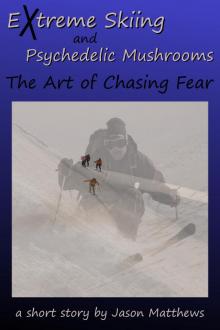 Extreme Skiing and Psychedelic Mushrooms: The Art of Chasing Fear
Extreme Skiing and Psychedelic Mushrooms: The Art of Chasing Fear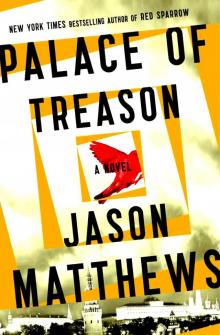 Red Sparrow 02 - Palace of Treason
Red Sparrow 02 - Palace of Treason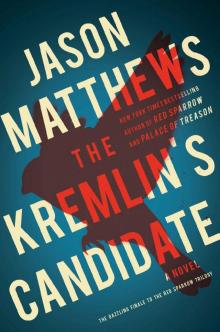 The Kremlin's Candidate
The Kremlin's Candidate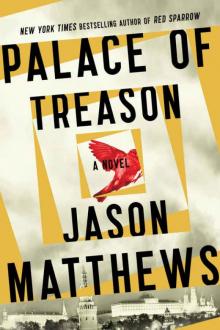 Palace of Treason
Palace of Treason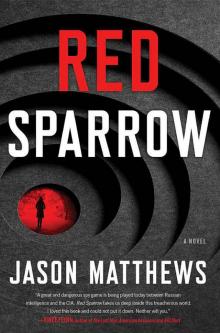 Red Sparrow
Red Sparrow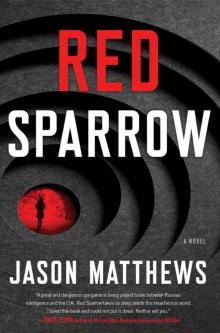 Red Sparrow: A Novel
Red Sparrow: A Novel